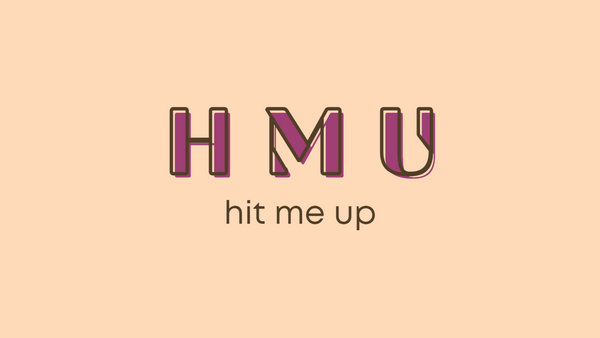As an avid social media user and moreover a memes consumer, you may have come across the ‘Rent Free’ meme that began trending a couple of years ago. What began as a meme, smoothly joined our social media lingo and also became a manner of speaking, even offline. Along with its ongoing social media journey, ‘rent-free’ is a real-life insult.
But, what does that even mean? Given the contexts in which ‘rent free’ is used, you may sometimes wonder how any of that is possible. Well, to begin with, the ‘living in your/my head rent free’ meme is not literal. As with most internet slang, it’s an exaggerated manner of speaking. So, what does ‘Rent Free’ speak of and why did it get so popular?
That’s a question that will live rent-free on this page.
What Does ‘Rent Free’ Mean on Social Media?
‘Rent Free’ offline, suggests using space without paying the fee it is worth — an illegal lifestyle choice by all means. Unless you’re allowed to live rent-free. A rent-free life is not just free of rent but is also a luxury that’s acquired or inherited for free.
Now, if you were complaining about someone or yourself living rent-free, on an online platform, then, this connotation stays for the phrase. But, the social media lingo has a slightly different meaning for ‘rent-free’. In real life, we need hard work to make money that’ll get us a roof by paying rent.
Social media uses the real-life means of living rent-free and applies it with the context of ‘ease’. Living rent-free means, living easy. There is no hard work, dedication, effort, money translated to value, involved while living rent-free. You’re just effortless living. Similarly, online, ‘rent-free’ corresponds to the ease with which something is affecting someone — in a good or bad way.
So, when someone says a meme stays in their head rent-free, they mean it effortlessly stays in their mind without much work and more often, without permission. Thoughts are pushed into short-term and long-term memory — the latter holds the more significant memories that don’t need repeated recollection to be memorized.
This can also mean that when something stays rent-free in someone’s thoughts, it is so subjectively significant that it easily and consistently lives in the person’s memory. So, ‘rent-free’ can suggest ease or value of thought/memory that stays in a person’s head.
Is Rent Free an Insult?
When the colloquial phrase ‘rent free’ was invented, it was intended as an insult. In 1999, Eppie Lederer (pen name – Ann Landers), an advice columnist wrote something that stuck with us for a very long time. In fact, that was the beginning of the modern-day ‘rent-free’ meme. However, the writer’s use of the phrase was meant to advise the inflicted and insult the inflictor.
“Hanging onto resentment”, she said, “is letting someone you despise live rent-free in your head”. Landers used ‘rent-free’ as a way that instantly made us think of all the times we held onto hate and revenge. This was possibly the first time ‘rent-free’ was used to denote thoughts and thinking. Eventually, when the phrase made it online, people began using it as an insult and in the framework of resentment.
The present connotation of ‘living rent-free in someone’s head’ can be both positive and negative. It doesn’t always indicate feelings of hate. Many times, people use this phrase to refer to something that effortlessly lives on in their minds whether they like it or not. This only suggests the impact a context has on the user.
How to Use the ‘Rent Free’ Slang?
This video lives on my head rent free from Unexpected
Embedded JavaScript
Going by the numerous variations for ‘living rent-free in someone’s head’, there are many ways you can use the ‘rent-free’ slang online. There are no rules while using this slang except for a condition — it must be something/someone you just cannot stop thinking about — but wouldn’t mind so. After all, to live ‘rent-free’ in someone’s mind translates to the fact that that person is constantly thinking about it and has little or no control over it.
While referring to humor
If a funny photo, meme, video, anything giggle-worthy keeps replaying in your mind and you just cannot completely erase it from your waking memory, then it looks like the humor has stuck on!
Use ‘rent-free’ to show how something funny is consuming your mental space every day (and maybe every minute). For example – ‘This meme that you sent four years ago still lives in my head rent-free’. It’s important to understand that slang and memes are meant to be over-the-top. In fact, that’s where the real humor lies.
To show or mock hate
This use-case aligns with the original intention of the phrase. If you are casually talking about something that angered you to the point you hate it, or if you are virtually counseling someone about hate, then too, use can use ‘rent-free’. For instance:
- The other day’s incident lives in my head rent-free, man. It makes me want to punch a wall every day.
- Man! Such a pathetic team worker. I cannot work with her.
Then, tell your boss and change your team.
I can’t do that. I’m new here.
Hmm. Quite a situation huh.
It’s not only that I can’t work with her, because she’s such a crappy co-worker, I don’t even walt to talk to her outside of work!
Listen. You’re just letting this moron of a team member live rent-fee in in your head and that’s making you hate every single say at work.
Damn. You’re right. Lemme take a while to let that sink.
To insult
Telling someone they live rent-free in your head is not a compliment. It means they’re living in your head without consent. So, if you want to instantly insult someone or something, this would be a great way to do so. For instance, ‘Geez that movie lives rent-free in my shelf’ or ‘That entire conversation lives rent-free on my phone’.
If something terrified you
If something stays rent-free in your head, then, it has had some kind of an influence — good, bad, or ugly. When we consume something horrifying, the memory tends to linger especially if our mind is sensitive. Many times, horrifying details can stay rent-free in our heads and that’s when you can use the phrase.
So, if you watched a horror flick, saw something scary, witnessed something unsettling, you can use ‘rent-free’ — only if the memory doesn’t seriously harm you in any way. When you use ‘rent-free’ as the slang it is today, it does two things — suggest awareness of the fact that something is occupying your mind and two — that it is not a big deal.
You must never use ‘rent-free’ for things that are traumatizing, anxiety-provoking, and disturbing unless you are okay with it. Here are two examples highlighting how you can apply ‘rent-free’ and how you objectively mustn’t in this use-case:
- Shit. Annabelle’s face still lives rent-free in my head, dude 😭
- Memories of my panic attack live rent-free in my mind every single day.
Both are acceptable contexts for this use-case as long as they are acceptable to you.
Analysis
‘Lives rent-free in my head’ is a modern-day way of subjectively valuing something and accepting the fact that you cannot stop thinking about it. Sometimes, this subjective value is out of genuine interest in the matter, and sometimes, it’s a helpless state of mind.
When we consume information in any form, we’re either interested in it or we’re not. When we’re interested, we think about it — and this, invariably causes related thoughts to live in your head. Now, these aren’t rent-free thoughts as they are “paying” the rent of personal interest (in a manner of speaking) to stay in your mind.
But, there are many times when we want to forget things but cannot — those thoughts are living in our heads rent-free. The underlying fact of the ‘living rent-free’ meme and slang is that these are memories that aren’t particularly helpful, in the best interest of the person, or are deliberately and persistently memorized.
Yet! They have value and therefore stay in our minds. This value is not something that’s voluntarily given to those thoughts. In fact, things that live rent-free in our heads are those that randomly caught our attention, have a hold on our emotions (mostly negative), and things that we’ve never witnessed before — the ‘first-time memory’ that sticks around.
Conclusion
The ‘rent-free’ slang, meme, and catchphrase has made quite the noise on social media ever since it became a trend. This modern way of saying you cannot stop thinking about something says more about the thing one is referring to than one’s memory.
Generally, a thought or memory’s rent-free existence is involuntary. So, ‘rent-free’ may be giving value to the thought but not subjectively. Most times, this phrase refers to things or people you want to forget but cannot.










Member discussion